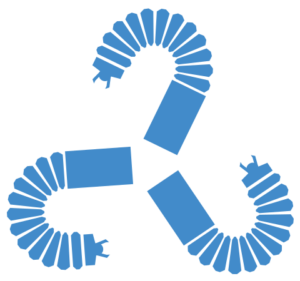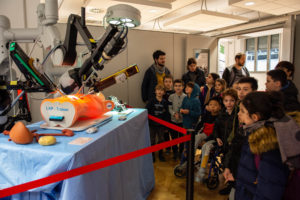Jorge Lazo
Jorge studied Mechatronics Engineering at the National Polytechnic Institute of Mexico (IPN) and Physics at the National Autonomous University of Mexico (UNAM). He continued with his Master of Science (M. Sc.) in Physics, Biological Physics and Computational Biology at Lund University, Sweden.
He obtained his M. Sc. degree in 2019 working in an interdisciplinary project, under the guidance of Prof. Mattias Ohlsson at the department of Computational Biology and Biological Physics of LU, analyzing multi-spectral airborne data to detect archaeological ruins using Computer Vision and Deep Learning methods.
Jorge is currently at The Department of Electronics, Information and Bioengineering (DEIB) of Politecnico di Milano (POLIMI) for a joint Ph. D. along with Université de Strasbourg (UNISTRA), as Early Stage Researcher in the Marie Curie ATLAS project under the European Union Innovative Training Network.
Election of the ESR representative
The elections for ESR representative were held on 8th May, 2020 in which all 15 ESRs participated through video conferencing. After discussions, all ESRs were named on the electoral roll and votes were cast. Out of the 13 votes cast, ESR1 received 3 votes, ESR2 received 6 votes, ESR5 received 2 votes, and ESR10 received…
A short review by one of the ATLAS ESRs
ESR 2 – Mohammad Hasan Dad Ansari was invited to be a part of a short review article related to magnetic spermbots. The article titled “Sperm Cell Driven Microrobots—Emerging Opportunities and Challenges for Biologically Inspired Robotic Design” has been accepted in the journal Micromachines and is online as of 23 April 2020. The article is…
Journal club: LaLonde et al, 2018
Capsules for Object Segmentation Rodney LaLonde |Ulas Bagci In the last few years, deep learning-based methods, in particular Convolutional Neural Networks (CNNs), have become the state-of-the-art for various image analysis tasks. Specifically related to the object segmentation problem, U-Net, Fully Convolutional Networks (FCN) have become the most used models for various medical image segmentation tasks.…
Opening of the Robotics Lab at Politecnico di Milano
On Tuesday, February 18th, Politecnico di Milano opened its doors to celebrate the inauguration of the new laboratories of the Department of Electronics, Information and Bioengineering. In the new facilities, located at Leonardo campus, will work about 100 people including researchers, doctoral, postdoctoral and masters students in different projects: from humanoid robots that help the…







